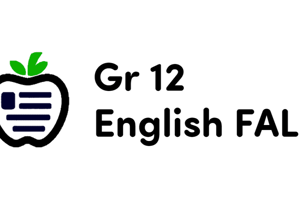Podcast
Questions and Answers
Which prefix, when added to a word, typically implies a sense of repetition or doing something again?
Which prefix, when added to a word, typically implies a sense of repetition or doing something again?
- pre-
- un-
- re- (correct)
- pro-
In the word 'biology', the root 'bio' is derived from Greek. What fundamental concept does 'bio' represent?
In the word 'biology', the root 'bio' is derived from Greek. What fundamental concept does 'bio' represent?
- life (correct)
- water
- measure
- earth
The suffix '-ness' is frequently used in English. What grammatical function does this suffix typically perform when added to an adjective?
The suffix '-ness' is frequently used in English. What grammatical function does this suffix typically perform when added to an adjective?
- forms a verb
- forms a noun (correct)
- forms an adverb
- forms another adjective
Which of the following words is a synonym for 'joyful'?
Which of the following words is a synonym for 'joyful'?
Identify the antonym for the word 'good' from the options below.
Identify the antonym for the word 'good' from the options below.
The word 'predict' contains the prefix 'pre-'. Based on the provided information, what general meaning does 'pre-' contribute to the word?
The word 'predict' contains the prefix 'pre-'. Based on the provided information, what general meaning does 'pre-' contribute to the word?
Which word utilizes the root 'meter', which relates to 'measure'?
Which word utilizes the root 'meter', which relates to 'measure'?
The suffix '-ful' often describes an adjective. Which of the following best illustrates the function of '-ful'?
The suffix '-ful' often describes an adjective. Which of the following best illustrates the function of '-ful'?
Flashcards
What are Prefixes?
What are Prefixes?
Morphemes added to the beginning of a word to change its meaning. They often indicate location, time, or quantity.
What are Roots?
What are Roots?
The core meaning of a word, often derived from Latin or Greek. They form the base to which prefixes and suffixes are added.
What are Suffixes?
What are Suffixes?
Morphemes added to the end of a word to change its meaning or grammatical function. They often indicate a part of speech.
What are Synonyms?
What are Synonyms?
Signup and view all the flashcards
What are Antonyms?
What are Antonyms?
Signup and view all the flashcards
What does the prefix "anti- " mean?
What does the prefix "anti- " mean?
Signup and view all the flashcards
What does the prefix "re-" mean?
What does the prefix "re-" mean?
Signup and view all the flashcards
What does the suffix "-ment" do?
What does the suffix "-ment" do?
Signup and view all the flashcards
Study Notes
Prefixes
- Prefixes are morphemes (meaningful units of language) that are added to the beginning of a word to change its meaning.
- They often indicate a relationship to other words, such as indicating a location, time, or quantity.
- Examples:
- un- (e.g., unhappy, undo) indicates negation or reversal
- re- (e.g., rewrite, retell) indicates repetition or re-doing
- pre- (e.g., prepare, predict) indicates before or in advance
- pro- (e.g., progress, pronounce) indicates forward movement or forthright
- anti- (e.g., antisocial, antibiotic) indicates against
- super- (e.g., superlative, supermarket) indicates above, better or additional
Roots
- Roots are morphemes that are the core of a word, carrying the basic meaning.
- They can be Latin or Greek in origin.
- These provide the fundamental meaning, and affixes (prefixes & suffixes) modify the meaning.
- Examples:
- aqua (Latin) – water (e.g., aquarium, aqueduct)
- bio (Greek) – life (e.g., biology, biosphere)
- graph (Greek) – write (e.g., photograph, autograph)
- meter (Greek) – measure (e.g., thermometer, barometer)
- ped (Latin) – child (e.g., pediatrician, orthopedic)
Suffixes
- Suffixes are morphemes that are added to the end of a word to change its meaning or grammatical function.
- They often indicate the part of speech (e.g., noun, verb, adjective).
- Examples:
- -ness (e.g., happiness, kindness) turns an adjective into a noun
- -er (e.g., teacher, baker) turns a verb into a noun
- -ful (e.g., careful, beautiful) describes an adjective
- -ing (e.g., running, reading) indicates a verb in progressive form
- -ment (e.g., judgment, movement) turns a verb into a noun.
- -ous (e.g., famous, dangerous) modifies an adjective or noun, sometimes representing a quality
Synonyms
- Synonyms are words that have similar meanings.
- They can be used interchangeably in many contexts, although subtle differences in connotation or usage might exist.
- Using synonyms can enhance language and vocabulary.
- Examples:
- happy and joyful
- big and large
- small and tiny
- good and excellent
- sad and unhappy
Antonyms
- Antonyms are words that have opposite meanings.
- They are used to highlight contrasting concepts or ideas.
- Examples:
- hot and cold
- good and bad
- big and small
- up and down
- fast and slow
Studying That Suits You
Use AI to generate personalized quizzes and flashcards to suit your learning preferences.




